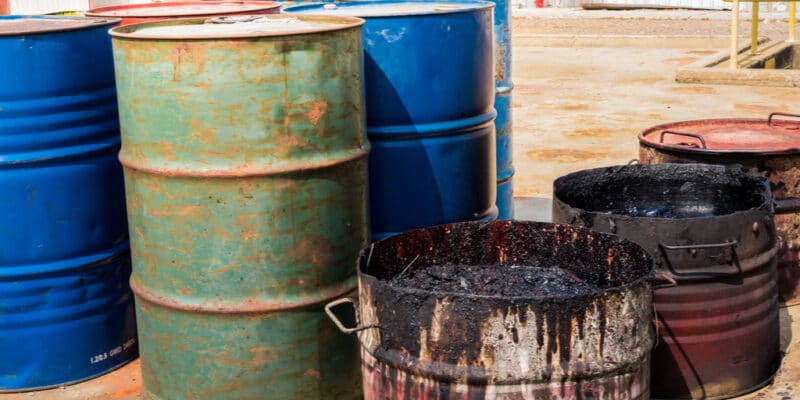Marine Bunkers Limited (MBL), a provider of shipping, trade and logistics services, plans to equip the port of Tema with a unit to reuse its oily waste. Called "Mini-P2R", the unit will be equipped by Ecoslops, a company based in Paris, France.
Transforming hydrocarbon waste into second-generation petroleum products: this is a gamble that could soon be won in Ghana. On February 8th, 2021, Marine Bunkers Limited (MBL), a provider of shipping, trade and logistics services in West Africa signed an agreement with Ecoslops for the acquisition of its new industrial unit called “Mini-P2R”. It will be located in the port of Tema, 25 km east of the capital Accra.
Reducing pollution
“Mini-P2R” is a component of the Ecoslops compact micro-refining unit; designed for medium sized ports. The technology used in the Mini-P2R is based on the P2R (Petroleum Residue Recycling) process, operated by the French company on an industrial scale since 2015. “The P2R unit will make it possible to recycle 98% of oil waste in Tema and the Gulf of Guinea region. The reuse of these oil residues will notably reduce illegal dumping (maritime or land-based), thus contributing to the preservation of the resource. It will also cut greenhouse gas (GHG) emissions per tonne of fuel produced by a factor of three, unlike a conventional oil production cycle,” says Ecoslops.
Thanks to Ecoslops’ industrial unit, MBL will also support the sustainable development policy of the port of Tema and the ports of the Gulf of Guinea. The company already has a facility dedicated to the collection (on-shore and off-shore) and treatment of oil waste in Ghana. With the “Mini-P2R”, Ghana’s maritime facilities will now be able to offer value-added services and create jobs. “We will train operators in Ghana to comply with international regulations. We will also provide multi-year technical assistance to the MBL,” says Ecoslops.
A practice that is becoming widespread in West Africa?
The reuse of oil waste is already being seriously considered in several West African countries. In March 2020, the Société Togolaise de stockage de Lomé (STSL) inaugurated its hydrocarbon waste treatment site. The facility was built by the Ivorian company Envipur to clean up nearly 3,000 tonnes of residues and waste (hydrocarbon-soaked sand and earth) from fuel oil storage tanks.
Inès Magoum






